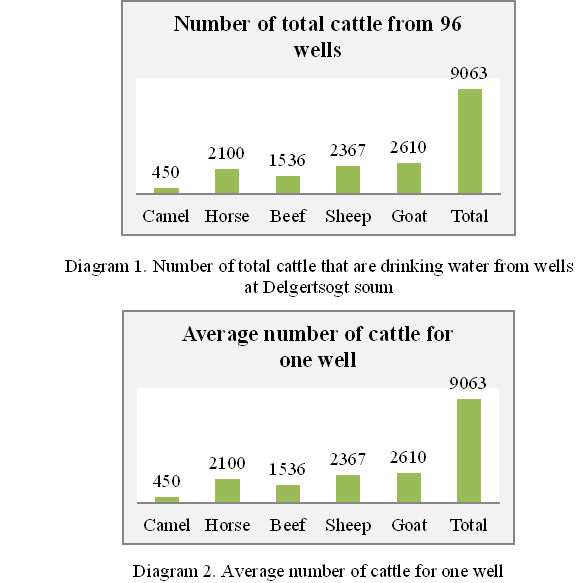INTRODUCTION
Mongolia has mainly nomadic in the countryside. Watering system at villages resolved by mechanically but for nomadic herding watering the herder uses pulling water out with bucket by hand and also small water pump. Those watering systems use much manpower and time. Therefore we purposed to make the watering system with automate controlling to save manpower, money and time.[1]
METHODS AND MATERIAL SECTION
Gobi does not have surface water commonly therefore we choose Delgertsogt soum of Dundgovi province as an object of research. We counted the all wells and all cattle and we found the most useful well to set up the automated watering system.
The system has movement sensor in it and the sensor feels animal when they approach to well and switches on pump. Water tank also have some sensors which are capable to determine upper and lower water levels. Hand pulling wells have disadvantage of freezing at winter time for automatically operated wells it could be controlled by placing the lower level sensor almost at the bottom of the water tank. When sensor locates at the bottom of tank the cattle will drink most of water and until to the sensor or bottom of tank come out the motor pump will not work. This automatically operated well can be used to supply water for normal cattle, farmers and wild rare animals without any human participation.
RESULTS
The biggest well of the Delgertsogt soum of Dundgovi province was Khunkhar’s well at Tsakhiurt bag and numbers of cattle is counted during cattle revision of 2014. Table-1 shows the structure of all cattle which are use the water from Khunkhar’s well and their capacity of water drinking. [1].
Table 1
Structure of cattle and capacity of water drinking
| № | Type of cattle | Number | Capacity of water drinking, l | Cattle volume, m2 | Water drinking time, min | Total volume of water, l |
| 1 | Goats and sheep | 2892 | 4.5 | 0.35 | 2 | 13014 |
| 2 | Cows | 147 | 48 | 0.85 | 3 | 7056 |
| 3 | Horses | 188 | 42 | 0.85 | 3 | 7896 |
| 4 | Camels | 9 | 90 | 0.95 | 5 | 810 |
| 5 | Total | 3236 | 28776 |
Delgertsogt soum has totally 96 wells and their information are given following diagrams. Total wells capacity at Delgertsogt soum (April. 2015)
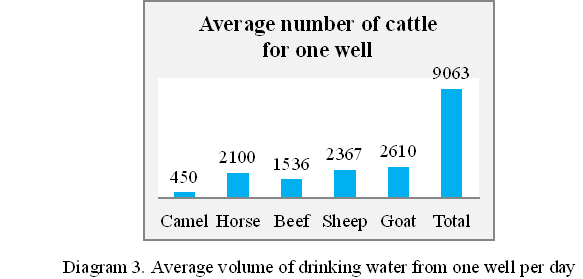
We have created an automate controlling system which is workable without human participation to pump water to tank from well. Following circuit shows the general layout of instrument of automation of well pump.
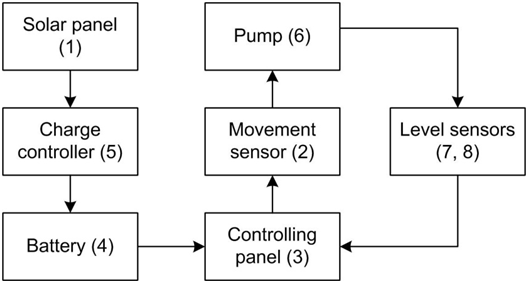
Figure 1. General layout of instrument of automation of well pump
When cattle comes to well movement (2) sensor sends the information to controlling panel (3), controlling panel switches on pump (6). When water level increases to upper level sensor (7) pump will switch off. When cattle drink water the lower level sensor (8) comes dry and pump will switch on again. The automated water pump system has independent power system with solar panel (1). Battery (4) will be charged at day time and power will be saved and stable.
Automated controlling block is fixed to ATMEGA 32 board and programmed by SI system. System operation information is transferred to LCD display. Movement sensor and water levels sensors are send the information to controlling board through relay and will control the pump. Picture-2 shows the circuit principle of automate controlling system.
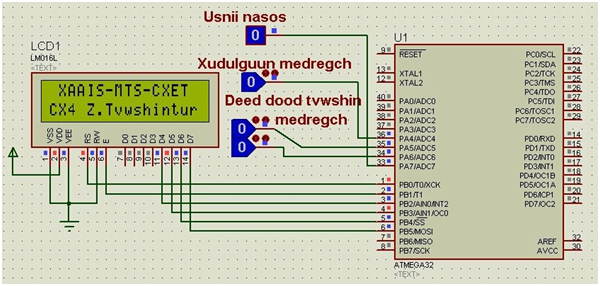
Figure 2. Circuit principle of automate controlling system
Power of automate controlling panel can be supplied power from solar panel and the system can work safely and stable.
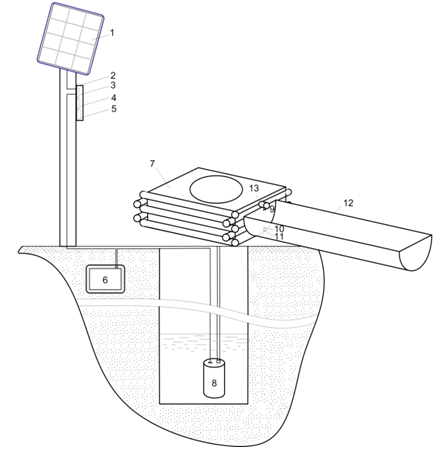
Figure 3. General circuit of automate operated well pump with solar power energy sources. 1-solar panel, 2- controlling panel, 3- charge controller, 4-microcontroller, 5- movement sensor, 6-battery, 7-well, 8- pump, 9- upper water level sensor, 10- lower water level sensor, 11-electrode, 12-water tank, 13-water outlet pipe
Following photo taken during experiment at Khunkhar’s well Delgertsogt soum, irrigating the cattle by our created new automate operated water pumping system.
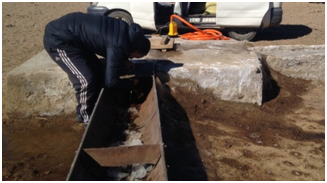
Figure 4. Locating the automate operated irrigating system to well.
30 cows came to well during the experiment and system worked well, pumped water to the tank.
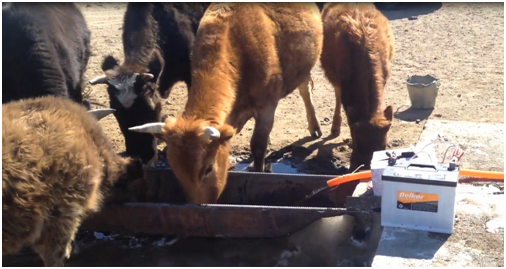
Figure 5. Irrigating cows by automate operated water pumping system.
The system worked well during the experiment. To install the all system at well we need to ensure safety and stability of controlling panel, movement sensors and also battery for future.
CONCLUSIONS
We made following conclusions from project of “Research of instruments for automation of well pumps”.
- Total budget to automation of well pump system was 530600 MNT and estimated repay time was around 0.4 year.
- If one herder has 3236 cattle, he needs to pull out 1933 times, 15l of bucket water from 5m deep well to irrigating his all cattle in one day. This system can eliminate the all of those manpower using work.
- We can save 3925 MNT in a day from using pump fueled pump by installing the solar panel to the system.
- Efficiency of economic can be increased. Herder can save 1432650 MNT in one year only from fuel spending of pump.
- This system fully capable to use for wild animal irrigating at solitude and can save ground water comparatively to using system now.
REFERENCES:
Books
[1] Baranchuluun. Sh, Chandmani. D, Dugarmaa. M “Graziery improvement” UB., 2004 year;
[2] Buuveibaatar. R, Amgalanzul. J “Renewable energy laboratory work book”. UB., 2012 year;
[3] Batdelger. B “Atlas Mongolian of Solar Energy”. UB., 2010 year;
Web sites
[4] www.Eic.mn;
[5] www.Icc.mn;
[6] www.dundgovi.gov.mn.[schema type=»book» name=»RESEARCH OF INSTRUMENTS FOR AUTOMATION OF WELL PUMPS» description=»Most herder irrigate their cattle from normal mining well by pull out water by bucket and some of them using small water pump which uses benzene as a fuel in our country. The pulling out water by bucket is requires a lot power from herder and also spends a lot time. On the other hand the cattle spending 30% of its pasture time around the well. Government solved the watering system to rare wild animals in national protected lands by connecting solar panel to water pump. But the system always works during sunny time and spending much water without users in waterless region. To solve these problems we are created the automated watering system with movement sensor on solar powered water pumping system and used it on live.» author=»Baatarkhuu Dorjsuren, Amgalanzul Jargalsaikhan, Ganbold Davgadorj» publisher=»Басаранович Екатерина» pubdate=»2016-12-18″ edition=»euroasia-science_28.04.2016_4(25)» ebook=»yes» ]


